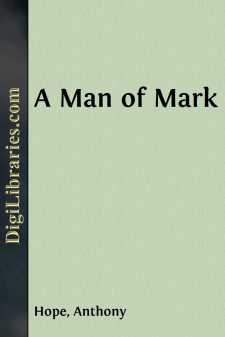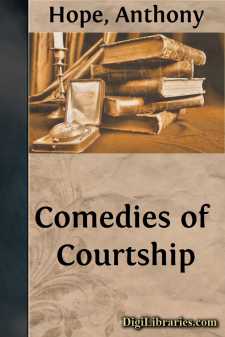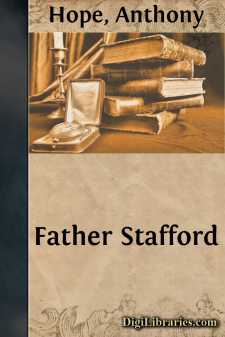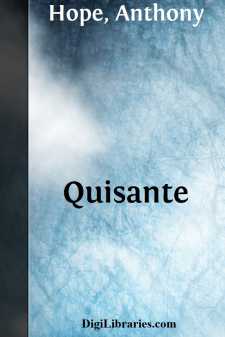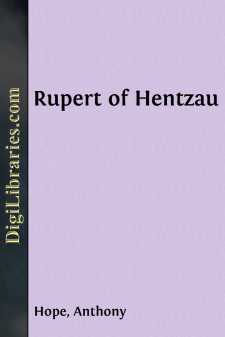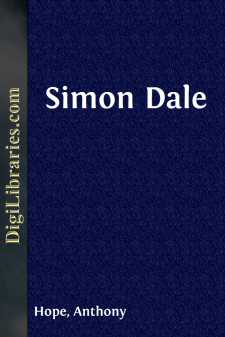Categories
- Antiques & Collectibles 13
- Architecture 36
- Art 48
- Bibles 22
- Biography & Autobiography 813
- Body, Mind & Spirit 142
- Business & Economics 28
- Children's Books 13
- Children's Fiction 10
- Computers 4
- Cooking 94
- Crafts & Hobbies 4
- Drama 346
- Education 46
- Family & Relationships 57
- Fiction 11828
- Games 19
- Gardening 17
- Health & Fitness 34
- History 1377
- House & Home 1
- Humor 147
- Juvenile Fiction 1873
- Juvenile Nonfiction 202
- Language Arts & Disciplines 88
- Law 16
- Literary Collections 686
- Literary Criticism 179
- Mathematics 13
- Medical 41
- Music 40
- Nature 179
- Non-Classifiable 1768
- Performing Arts 7
- Periodicals 1453
- Philosophy 64
- Photography 2
- Poetry 896
- Political Science 203
- Psychology 42
- Reference 154
- Religion 513
- Science 126
- Self-Help 84
- Social Science 81
- Sports & Recreation 34
- Study Aids 3
- Technology & Engineering 59
- Transportation 23
- Travel 463
- True Crime 29
Anthony Hope
Anthony Hope, born Anthony Hope Hawkins on February 9, 1863, was an English novelist and playwright best known for his adventure novel "The Prisoner of Zenda" (1894). The novel's success led to numerous adaptations and cemented Hope's place in literary history. Besides his notable works of fiction, Hope was also a barrister and had a brief political career before dedicating himself fully to writing.
Author's Books:
Sort by:
by:
Anthony Hope
CHAPTER I. THE MOVEMENT AND THE MAN. In the year 1884 the Republic of Aureataland was certainly not in a flourishing condition. Although most happily situated (it lies on the coast of South America, rather to the north—I mustn't be more definite), and gifted with an extensive territory, nearly as big as Yorkshire, it had yet failed to make that material progress which had been hoped by its...
more...
by:
Anthony Hope
CHAPTER I THE HOUSE ON THE BLUFF To the eye of an onlooker Captain Dieppe's circumstances afforded high spirits no opportunity, and made ordinary cheerfulness a virtue which a stoic would not have disdained to own. Fresh from the failure of important plans; if not exactly a fugitive, still a man to whom recognition would be inconvenient and perhaps dangerous; with fifty francs in his pocket, and...
more...
by:
Anthony Hope
CHAPTER I THE VIRTUOUS HYPOCRITES AT first sight they had as little reason for being unhappy as it is possible to have in a world half full of sorrow. They were young and healthy; half a dozen times they had each declared the other more than common good-looking; they both had, and never knew what it was not to have, money enough for comfort and, in addition that divine little superfluity wherefrom joys...
more...
by:
Anthony Hope
A LIBERAL EDUCATION "There's ingratitude for you!" Miss Dolly Foster exclaimed suddenly. "Where!" I asked, rousing myself from meditation. She pointed to a young man who had just passed where we sat. He was dressed very smartly, and was walking with a lady attired in the height of the fashion. "I made that man," said Dolly, "and now he cuts me dead before the whole of...
more...
by:
Anthony Hope
Eugene Lane and his Guests. The world considered Eugene Lane a very fortunate young man; and if youth, health, social reputation, a seat in Parliament, a large income, and finally the promised hand of an acknowledged beauty can make a man happy, the world was right. It is true that Sir Roderick Ayre had been heard to pity the poor chap on the ground that his father had begun life in the workhouse; but...
more...
by:
Anthony Hope
RELUCTANCE. Neither life nor the lawn-tennis club was so full at Natterley that the news of Harry Sterling's return had not some importance. He came back, moreover, to assume a position very different from his old one. He had left Harrow now, departing in the sweet aroma of a long score against Eton at Lord's, and was to go up to Oxford in October. Now between a schoolboy and a University man...
more...
by:
Anthony Hope
CHAPTER I. THE IMPOSSIBLE—INEVITABLE. In the garden the question was settled without serious difference of opinion. If Sir Robert Perry really could not go on—and Lady Eynesford was by no means prepared to concede even that—then Mr. Puttock, bourgeois as he was, or Mr. Coxon, conceited and priggish though he might be, must come in. At any rate, the one indisputable fact was the impossibility of...
more...
by:
Anthony Hope
DICK BENYON'S OUTSIDER. A shrunken sallow old lady, dressed in rusty ill-shaped black and adorned with an evidently false 'front' of fair hair, sat in a tiny flat whose windows overlooked Hyde Park from south to north. She was listening to a tall loose-built dark young man who walked restlessly about the little room as he jerked out his thoughts and challenged the expression of hers. She...
more...
by:
Anthony Hope
CHAPTER I. THE QUEEN'S GOOD-BY A man who has lived in the world, marking how every act, although in itself perhaps light and insignificant, may become the source of consequences that spread far and wide, and flow for years or centuries, could scarcely feel secure in reckoning that with the death of the Duke of Strelsau and the restoration of King Rudolf to liberty and his throne, there would end,...
more...
by:
Anthony Hope
CHAPTER I THE CHILD OF PROPHECY One who was in his day a person of great place and consideration, and has left a name which future generations shall surely repeat so long as the world may last, found no better rule for a man's life than that he should incline his mind to move in Charity, rest in Providence, and turn upon the poles of Truth. This condition, says he, is Heaven upon Earth; and...
more...


